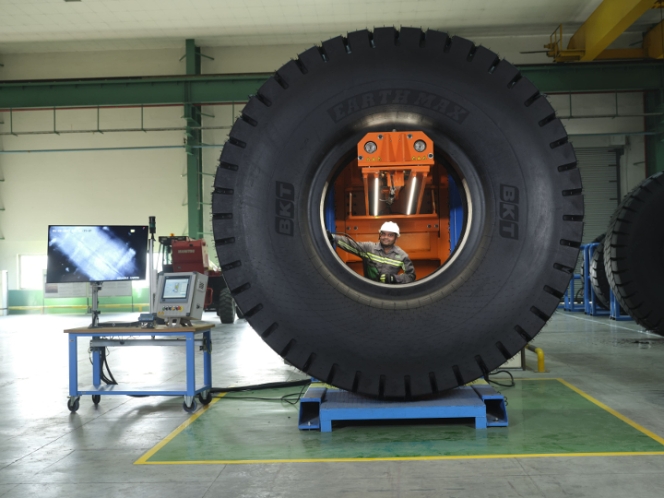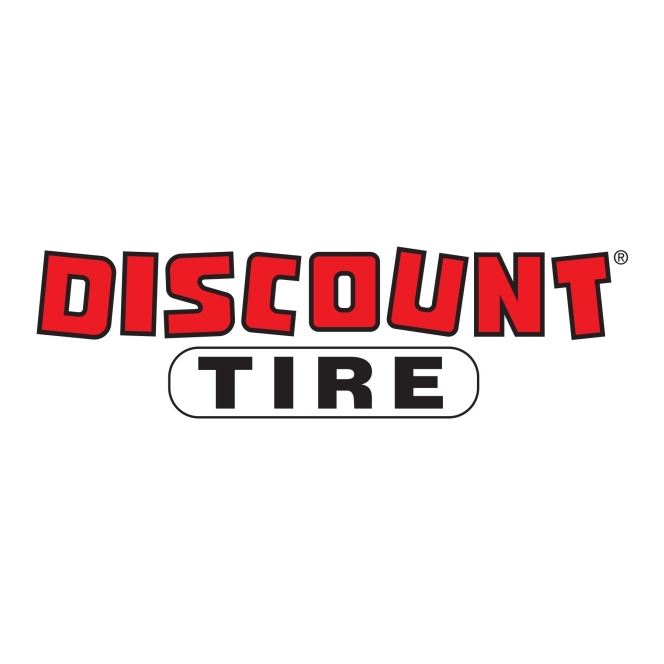
BKT has announced that with its enhancement at Bhuj, it is aiming for an annual tyre production of 600,000 metric tonnes (MT). The company also envisages the achievement of two billion dollars in turnover in three years.
Bhuj from 201 to 2023
When the first tyre rolled off the Bhuj production line in 2012, the plant was located on an area of 123 hectares. Then it was a $500 million investment. Before starting the works, the desert landscape was completely arid. There was neither water nor electricity. But after the laying of many kilometres of drinking water pipes and power lines, the site grew with 126 hectares in 2016, 131 in 2019, 137 in 2021 and 258 in 2022. By the end of 2023, the forecast is to reach a total surface area of 323 hectares, of which 283 have already been acquired.
Better production and safety
BKT claims that Bhuj today sees more efficient machinery installed, with features that make it possible to work faster and more precisely. This increases the quantity of production and the quality of the finished product. This means, for example, that the amount of product discarded is reduced, increasing the sustainability of the manufacturing process and consequently reducing production costs. Occupational risks are also reduced and worker comfort improved.
Self-produced carbon black
A further strategic choice by BKT to enhance the Bhuj site was to invest in its own carbon black plant. The plant came into operation in 2017, when the first 65,000 MT/PA of hard grade carbon black was produced, the type of carbon black used specifically in tyre tread. The following year, production increased from 65,000 to 110,000 MT and saw the addition of production of soft grade carbon black. This carbon black is used in the casing compound to improve its strength and durability, generating less heat. In 2021, total production of the two types of carbon black reached 138,000 MT per annum, while last year it rose to 165,600 MT per annum.
The goal for 2023 is 198,600 MT. In addition to this, the R&D department plans to add a third type of carbon black, the ‘specialty carbon black’. It is a type of carbon black with unique properties compared to that used in rubber compounds, such as high resistance to colouring, a high level of purity, a low ash level and very low level of PAHs, which make it suitable for use in specific applications, such as paints, plastics and inks.
Increasing production capacity
The expansion of the plant means an increase in production capacity. The operational logistics have also improved significantly. This has allowed the introduction of new specialist workers, as well as providing greater flexibility in production and storage flows. Speaking of work, the construction of new facilities also marked an improvement in employees' safety conditions, an aspect which BKT takes very seriously. The community that operates on the Bhuj site today is very large. At the end of December 2022, the number of people working there was 4,776.
The wellbeing of the BKT family
BKT dedicates a significant investment to the wellbeing of its community every year, through the expansion of the area housing the families of employees (now almost 1,000 people live there), in the care of their health and in the education of their children.
A good use of resources
Bhuj is also a model for the good use of resources. In 2013, the internal power plant was created to have a reliable and controlled source of electricity. Today, both solar panels and the cogeneration plant make it possible to self-produce energy. In 2022, the cogeneration plant was expanded from 20 MW to 40 MW. Projects are still underway to increase the power of self-produced renewable resources.
Water is also at the heart of BKT's path towards sustainability. Since 2019, the Zero Liquid Discharge (ZLD) principle has been adopted. This means that no liquid waste is released outside the plant. All water used in the plant is treated, purified and reused. The objective of the ZLD principle is to conserve water resources, reduce the environmental impact of wastewater discharge and improve the overall efficiency and sustainability of the plant.
Carbon black production made more sustainable
The tyre manufacturer has also taken an approach to carbon black production to make the whole process more sustainable. The company has substituted bulk bag containers with mobile silos. This means that the tyre production plant receives the carbon plant with the aid of mobile silos transported pneumatically to the storage. This will make BKT save on packaging, i.e., 100,000 bulk bags in the next few years. The whole transportation system is also designed to reduce energy usage, consumption and quality. Every transfer system is controlled by weight and the energy used. The future goal is challenging – reducing energy consumption up to 70 percent. This translates in saving more than two million kilograms CO2 emissions per year, which are comparable to 5,000 apartments of 100 square metres each.
At the same time, the gas used to manufacture carbon black is now ending up in a co-generation plant, able to reuse 75,000 cubic metres of gas per year. This means saving 215,000 MT of coal per year.
Research opens up the future
BKT's R&D division was what allowed the Bhuj site to grow. Established in 2017, this hub develops both products and processes, to ensure the company can maintain its international leadership. Led by a specialist team of researchers and analysts, it remains an important and up-to-date research centre in the tyre sector.
Coming to testing, a special test track was inaugurated in 2017. With six different tracks, this circuit includes tracks for tyre performance tests in dry and wet conditions, an asphalt track and a sloping concrete track. Thanks to a wide variety of tests, many important characteristics such as traction, handling, comfort, soil compaction and more can be measured here because of high precision devices and instruments.
A concrete vision
Rajiv Poddar, Joint Managing Director at BKT, says, "People have asked me if all this was really necessary, so much in such a short time. The goals we set ourselves when we decided to open the Bhuj site were proportional to the financial solidity of the time, but above all, to a vision which is as great as it is concrete.”
He added, “Analysing the market and anticipating it with passion and foresight is what we have done all these years. Growth has always been in step with demand, not without – let me say it – courage and creativity, but never without our objectives and investments having solid foundations. Global tyre demand is growing and we see no signs of it slowing down over the next five years. This is a demand which started to rise during the 2020 pandemic, and which today is above pre-Covid levels. Will it be difficult? Will it be a challenge? Our vision is simple, which is why it is very concrete. The journey we started out on at Bhuj in 2012 was never a return journey, but one to prepare ourselves to discover the future."
Michelin Appoints James Dimmock As Commercial Communications Manager For UK And Ireland
- By TT News
- February 05, 2026

Michelin has appointed James Dimmock as its new Commercial Communications Manager for the United Kingdom and the Republic of Ireland. Based at the company's Stoke-on-Trent headquarters, he will report to the Northern European Communications team. In this capacity, Dimmock will oversee all commercial communications, including public relations, social media and influencer partnerships.
His mandate involves crafting the brand's commercial narrative, fostering stronger connections with media and content creators and producing innovative digital content to support the brand's growth. He brings more than two decades of extensive experience with Michelin to the role, having held various senior marketing and communications positions both internationally and domestically. His most recent role was as Social Media and Influencer Manager. He will now lead these efforts locally while integrating with the broader communications team.
John Howe, Managing Director, Michelin UK, said, “James has already made a significant contribution to Michelin communications activity in the UK & ROI. His deep understanding of our business and products, combined with his strategic and creative approach, makes him ideally placed to lead our commercial communications as we continue to evolve our brand.”
Dimmock said, “I am excited to be taking on this new role at Michelin. It is a privilege to continue building on the work we have already achieved and to help drive the next phase of our commercial communications strategy across the UK & ROI.”
Discount Tire Earns Spot On Glassdoor's Best Places To Work 2026 List
- By TT News
- February 04, 2026

Discount Tire has earned a prominent position on Glassdoor's Best Places To Work 2026 list, ranking 14th in Consumer Services and within the top 100 US employers. This distinction is awarded to organisations with over 1,000 employee reviews on Glassdoor and a minimum rating of 3.5. For the Scottsdale-based retailer, with more than 1,250 locations nationally, the honour underscores a long-standing commitment to its workforce.
The company cultivates a people-first culture for its over 30,000 employees by providing substantial career growth, thorough training, leadership development and competitive benefits. This philosophy, centred on serving others and empowering personal goals, previously earned Discount Tire top Glassdoor rankings from 2018 through 2021. The latest recognition reaffirms its status as an employer dedicated to fostering a supportive and progressive workplace.
Dean Muglia, Chief Executive Officer, said, "We treat our people like family. We're honoured to be recognised by both current and former employees and Glassdoor as a best place to work. We strive every day to deliver the most inviting, easy and safe experience possible for our people and our customers."
Michael Zuieback, Executive Chairman, said, "Through six and a half decades of growth, our primary commitments have stayed true: We want to take care of people and help make more dreams come true.”
Radar Tyres Secures Strategic Multi-Year Partnership With Cricket South Africa
- By TT News
- February 04, 2026

Radar Tyres has entered a significant, multi-year global partnership with Cricket South Africa, a strategic move to build its brand within a sport enjoyed by a worldwide audience. This alliance grants the company headline sponsorship for the Proteas Men’s and Women’s T20 International sides, alongside associate partnership status for their ODI and Test matches. Radar will also be the headline partner for South Africa’s Under-19 national teams.
The collaboration provides substantial visibility, featuring exclusive logo placement on both match and training kits, with the new T20I apparel already unveiled. For Radar, this investment is a key step in leveraging high-profile platforms to enhance global brand recognition, all while maintaining its commitment to providing high-quality, value-driven tyre products.
G S Sareen, President and CEO, Omni United, said, "Becoming the Global Partner of the Proteas marks a significant milestone in Radar Tyres' global brand journey and reflects our belief in sport as a powerful platform to build brand equity, strengthen dealer support, enhance trust and credibility and connect with households worldwide. Through this partnership, we are able to engage with cricket fans both locally and globally while reinforcing Radar Tyres' as a reliable, performance-driven brand committed to delivering premium-performance at an accessible price point."
Pholetsi Moseki, Chief Executive Officer, CSA, said, "CSA is extremely proud to partner with Radar Tyres, an organisation that shares our values and commitment to excellence. This partnership is a significant milestone, securing support not only for our senior teams but for our junior teams as well. This partnership reflects our deliberate approach to working with like-minded organisations, guided by a long-term vision of developing the game, supporting our players and delivering memorable experiences for fans. Radar Tyres' support also reinforces CSA's commitment to excellence and inclusion, strengthening our ability to drive high performance across all levels."
AZuR Shortlisted For German Award For Sustainability Projects 2026
- By TT News
- February 03, 2026

For the second consecutive year, the Alliance for the Future of Tyres (AZuR) has been shortlisted for the German Award for Sustainability Projects, following its 2025 win. This renewed nomination underscores the jury’s recognition of AZuR as a pioneering force in sustainability, particularly for its dedicated efforts to advance tyre retreading as a core component of a circular economy. The 2026 award ceremony will be held under the patronage of Brigitte Zypries on 17 September in Berlin.
AZuR’s multifaceted initiative extends well beyond theoretical advocacy. Its work gained significant international attention with the Retreading Summit, held in September 2025 at KRONE Trailer in Werlte. This event convened experts from industry, politics, academia and media for two days of intensive dialogue on the potential, challenges and necessary policy frameworks for tyre modernisation, leading to the launch of concrete action plans. Furthermore, the alliance drives progress through strategic communications and direct support for flagship projects, such as the new passenger car tyre retreading facility established by Rigdon in Pfaffenhofen.
Central to AZuR’s mission is transforming public perception by demonstrating that worn tyres are valuable resources, not waste. Through ongoing awareness campaigns, it highlights the substantial ecological and economic benefits of retreaded tyres, which can be refurbished multiple times to conserve raw materials, reduce climate impact and offer cost-effective solutions. The German Award for Sustainability Projects, judged by a panel chaired by Prof Dr Claudia Kemfert of DIW Berlin, evaluates entries based on their innovation, impact and relevance to a sustainable future. AZuR’s repeated shortlisting affirms that its model for a tyre circular economy is a replicable and exemplary system with groundbreaking potential.







Comments (0)
ADD COMMENT